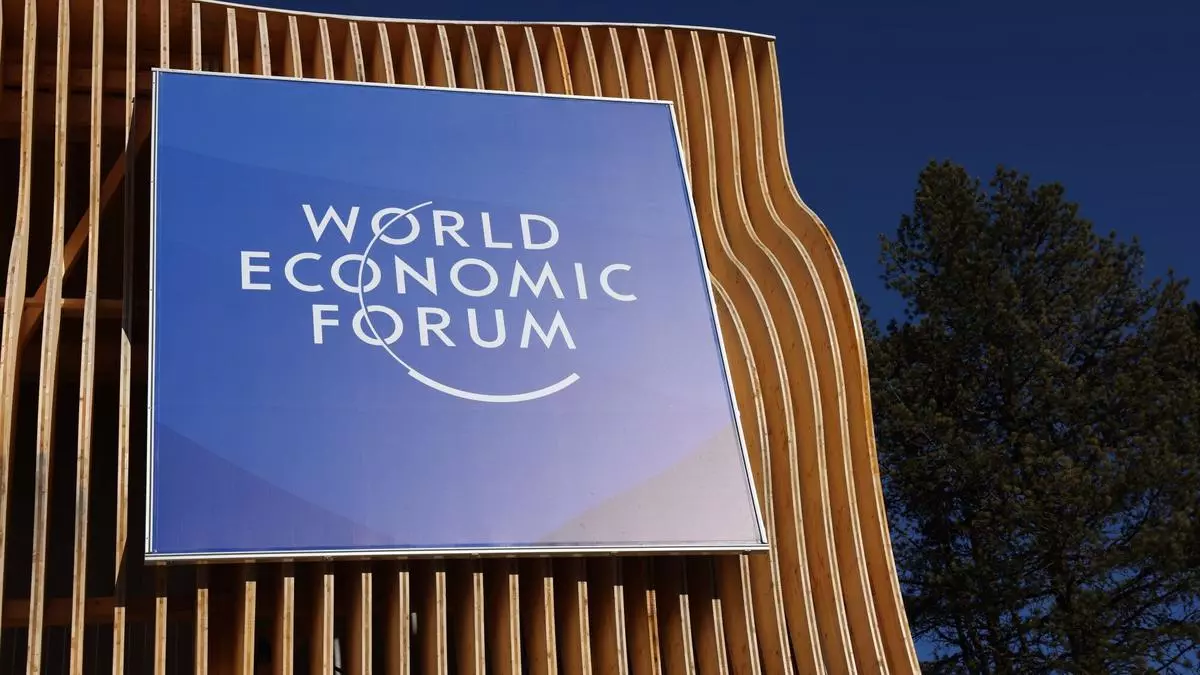 |
|
The World Economic Forum (WEF) summit in Davos witnessed Maharashtra securing a record number of investment deals, a significant achievement for the state's economy. Chief Minister Devendra Fadnavis played a pivotal role in these successes, actively engaging with key executives from various multinational corporations and Indian conglomerates. His efforts resulted in concrete commitments and expressions of interest that promise substantial economic growth for Maharashtra. The scale of these investments underscores the state's attractiveness as a prime destination for both domestic and international businesses.
Among the most significant commitments was the Tata Group's pledge of ₹30,000 crore (approximately US$3.6 billion) in investment. This substantial investment highlights the Tata Group's confidence in Maharashtra's business environment and its potential for future growth. The commitment likely encompasses a range of projects across various sectors, contributing significantly to job creation and economic diversification within the state. The details of the investment plan will likely be revealed in subsequent announcements, providing a clearer picture of its impact on specific regions and industries.
Beyond the Tata Group's substantial commitment, several other companies expressed strong interest in investing in Maharashtra. The Carlsberg Group, a major player in the beverage industry, signaled its intent to invest, indicating the state's appeal to international corporations. Similarly, the Lulu Group, a prominent retail conglomerate, showed interest in expanding its operations in Maharashtra, particularly in Nagpur. This expansion reflects the growing consumer market in Maharashtra and the opportunities available for retail businesses. The potential influx of foreign investment suggests a positive outlook for job creation and economic expansion in Maharashtra.
The energy sector also received significant attention during the Davos summit. Discussions between Chief Minister Fadnavis and Sumant Sinha, Chairman and CEO of ReNew Power, focused on a substantial 15,000 MW pipeline and wind energy project in Beed district. This ambitious project underscores the state's commitment to renewable energy and its potential to become a leader in sustainable energy solutions. The project's scale indicates the potential for significant job creation in the energy sector and the development of related infrastructure.
Beyond major corporate investments, collaborations focused on skill development and technological advancements were also discussed. Discussions with Schneider Electric India highlighted plans to empower Industrial Training Institutes (ITIs) in Maharashtra, leveraging the expertise of the World Bank and incorporating Artificial Intelligence (AI) in the energy sector. This collaboration signifies a forward-thinking approach to education and technology integration, positioning Maharashtra at the forefront of technological advancements. Further expansion plans by Schneider Electric in Ahilyanagar and Nashik indicate a commitment to growth and development within the state.
The involvement of Mastercard Asia-Pacific and Louis Dreyfus Company further diversified the spectrum of investment interests. Discussions with Mastercard focused on collaborations that could leverage technological advancements for economic growth. The meetings with Louis Dreyfus Company emphasized partnerships in agriculture, food processing, international shipping, and finance, indicating a commitment to developing the agricultural sector and enhancing international trade. These discussions highlight the state's focus on diversifying its economy and strengthening its global connections.
The participation of Cognizant, a leading technology services company, signifies the attractiveness of Maharashtra as a hub for the IT sector. The meeting between the Chief Minister and Cognizant's CEO suggests the potential for further investments and collaborations in the technology sector, further solidifying Maharashtra's position as a technological powerhouse. The overall success of the Chief Minister's efforts in Davos underlines the strategic importance of proactive engagement with international and domestic businesses. These investment commitments demonstrate significant confidence in Maharashtra's economic potential.
The agreements signed and the discussions held at the Davos WEF summit signal a positive trajectory for Maharashtra's economy. The diverse range of sectors involved—from energy and technology to retail and agriculture—suggests a holistic approach to economic development. The magnitude of the investments secured highlights the effectiveness of the state's efforts in attracting both domestic and foreign investment. This wave of investment is expected to significantly contribute to job creation, economic growth, and the overall advancement of Maharashtra's infrastructure and industrial capabilities. Further details regarding the implementation and timelines of these projects will be eagerly awaited, offering a clearer picture of the transformative impact on the state's economic landscape.
Source: Maharashtra secures record investment deals at Davos WEF Summit
